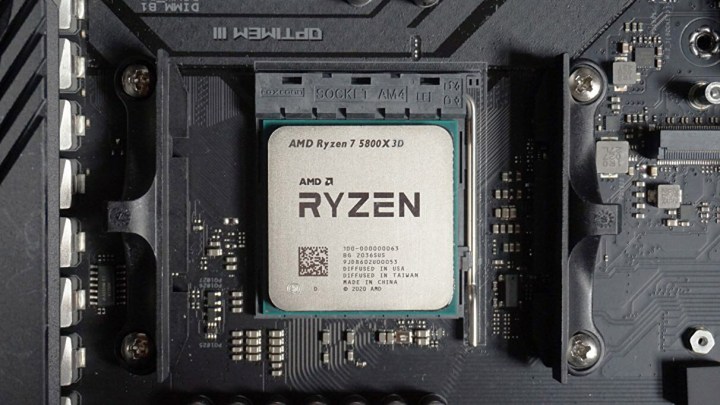Things may be just about to get easier for overclocking enthusiasts using AMD products — the company has filed a patent for an automatic overclocking tool.
If the tool is released, it might make memory overclocking on the new AMD Ryzen 7000 platform much easier than it was before.

Dynamic random access memory (DRAM) overclocking is not a novel idea, but it’s also not something every PC enthusiast engages in. It requires time, meticulous handling of the timings and frequencies, and a little bit of bravery if you want to push your PC to the very limit and beyond. To make things easier, Intel has introduced eXtreme Memory Profiles (XMP), a tool that helps users overclock compatible memory modules within specific settings.
Although Intel XMP is a convenient tool, it tends to err on the side of caution, which means that enthusiasts still end up tweaking the memory overclock through other, non-automated, means. However, AMD seems to be working on a middle ground capable of satisfying both experienced overclockers and those who want to be more conservative with their memory settings.
AMD’s new patented tool seems to be aimed at intermediate users who want to fine-tune the performance of their memory modules and processors alike — all without needing to tirelessly adjust every little thing themselves. Additionally, it should allow users with cheaper memory modules with JEDEC standard settings to overclock them as much as possible. Even those who own some of the best RAM should be able to push their high-end options to new levels of performance in an easier way.
An excerpt from AMD’s memory overclocking patent reads: “Settings for memory modules can be configured according to vendor profiles or user input specifications. These profiles are often generated and tested using system configurations differing from a user system. Additionally, user input specifications may be restricted using margins determined and tested using these differing system configurations.”

The way the software is meant to work covers a few different bases, ranging from picking a frequency setting to then testing it. Provided that everything goes well during the testing process, AMD’s tool should then pick the most beneficial timing settings that still pass all of the stability checks. Then, a profile will be generated to save all of these settings for future use, and last, it will be loaded to come into effect. The patented tool doesn’t seem to tweak voltages, implying that this is something the users may still need to work out themselves.
Unsurprisingly, the patent doesn’t mention a possible release date for the new tool. However, given AMD’s previous statements in regard to overclocking on the new AMD Ryzen 7000 processors, it’s very likely that this tool may be part of the plan when the new CPUs launch in the fall. AMD has teased that its next-gen processors may be up to 31% faster than Intel’s current best processors.




